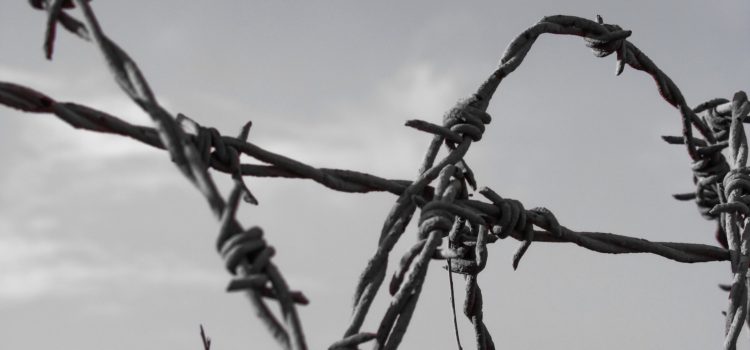
“Breakdown Boundaries”
I only knew boundaries in regards to “too much” and “exhausted” Boundaries were a last resort once resentment, fear, or anger not longer could be silenced. My boundary would flare up once I was “fed up” with a certain pattern or experience. I had to reach yet another breaking point.
Without intentional, integral, and healthy boundaries, I would go months sometimes years, assuming that stretching my life, schedule,and capacities was fine, even dare I say, thriving. It looked like I could accomplish more than humanly possible. I liked looking like that, until I hit the breaking point. Then, the unsustainability of my life would come crashing in on me.
The Breaking Point
The breaking point seemed to bring me face to face with the shame, rejection, fear, discomfort, and inauthenticity from which I was running. Establishing boundaries requires more than a schedule change, it requires us renavigating how we show up in relationship – and that is far more frightening than time management.
I have since realized that breaking points prompted desperate attempts to survive. Out of sheer exhaustion, I would have to enforce “boundaries.” These “boundaries” would be enforced suddenly and reactively with no real longterm change. I have since realized these were more like ultimatums and affected the people closest to me.
Yet, as long as I had a chance to catch my breath, I would become overly accommodating. This only served to reposition me to hit another breaking point. I didn’t cultivate the clarity, intention, and emotional strength to create a life based on my ownership. I would simply accommodate until I need to defend the last shreds of energy I had left.
Reacting at a breaking point can sound like this:
“You have pushed me too far.” “I cannot take it any more.” “You always expect me to take care of this.” “Its not fair.” “You don’t give me any breathing room.” “You never take time to understand me.” “You are exhausting.” “Suzie kept talking and wouldn’t let me get my work done.” These statements are defensive and lack ownership.
Ownership
Ownership sounds more like:
“I have lied about my interest in assisting on this project hoping you would promote me. I really have no consistent desire to contribute to projects like this.”
“I have been pretending to enjoy our relationship for the last 5 months and I have been resentfully listening to you complain. I wanted you to see me as caring, even when I wasn’t.”
“I wasn’t honest about my desires for the weekend, because I wanted to avoid any tension between us. I let you plan the weekend because then I could be secretly resentful at you. Also, because I was accomodating you, I felt justified in invalidating any reason for you to be resentful with me.”
“I value the way I appear to Suzie more than I value what I contribute through my work.”
Once the current values are owned, they can be reassessed and renavigated. If ones choices, values, and beliefs are not owned his/her only option is to just get desperately defensive once he/she reaches a breaking point.
Gradual Ownership
Owning one’s own values, beliefs, and choices becomes easier the less dependence someone has on another. This may be emotional or financial dependence. Dependence can be valuable and useful yet the dynamics of the dependency could easily deteriorate the types of boundaries that allow you to discover your genuine authenticity.
Because a sense of belonging or esteem in a social group is a foundational human need, this need will often trump one’s authenticity. Compromising one’s authenticity is even more likely if we see ourselves as financially and or emotionally dependent upon one particular group or its authorities. This is understandable, but costly. Because of this dynamice, we must consider the benefits taking steps of financial independence and finding emotional support from groups who value authenticity to support healthy boundary development.
The Value of Boundaries that Prioritize Ownership
Boundaries allow us to decide, invest in, own, honor, and express our greatest values. Boundaries allow us to protect, nurture, cultivate, and take responsibility for those things in which we believe. Boundaries become like rails to the moving train of our self actualization.
Therefore, boundaries are optimal when they are developed from ownership. Next blog, I am going to discuss the value of ownership in more detail.
Most people do not own their own values, priorities, and emotions. Ownership feels dangerous because it can be emotionally and relationally uncomfortable and affect our relationship to resources. Yet not having intentional, integral, and healthy boundaries to protect and nurture your authenticity is also dangerous and costly.
Taking small steps of awareness and ownership can assist you moving out of desperate defense to supporting your values and priorities. Most of people I meet have collapsed their boundaries so long ago that they aren’t even sure what his/her values or priorities are. If this sounds like you, small steps could be your life saver.
Try this exercise today:
Write down 5 reactive statements about people that are “breaking down your boundaries.”
Then turn those into statements of ownership.
Say the statements out loud.
Notice how the different statements feel in your body.
